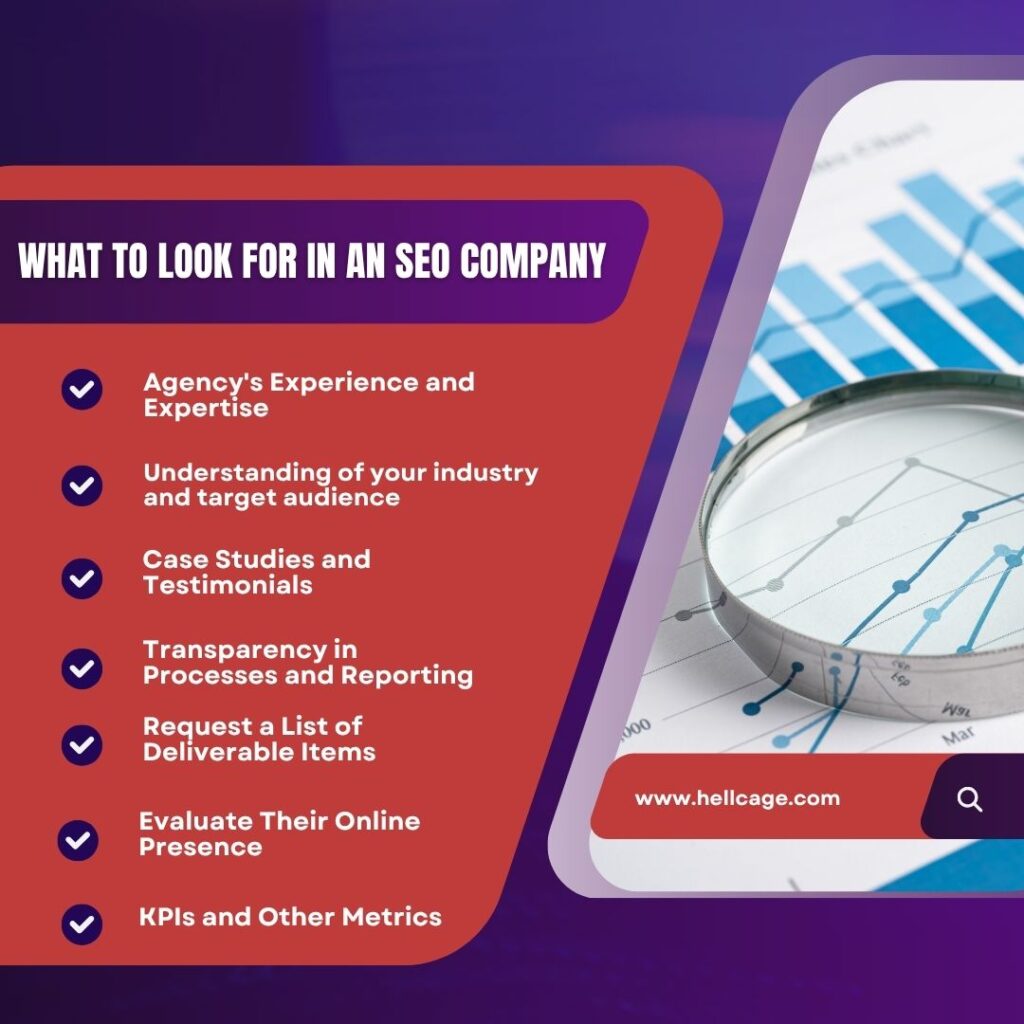Starting a new business is both exciting and overwhelming. You have a great product or service ready to launch, but establishing a strong digital presence from day one is crucial. That’s where Search Engine Optimization (SEO) becomes essential. It’s the key to customers finding you online.
Choosing the right SEO agency is a critical early decision that can make or break your online growth. With thousands of agencies available, finding the perfect strategic partner is undeniably challenging. The right agency becomes your growth engine, driving visibility, traffic, and customers. The wrong partner risks wasting precious time and budget.
This guide cuts through the confusion. We break down every important step to help you navigate the selection process confidently and make an informed choice for your new venture’s success.
Why Choosing the Right SEO Agency is Critical for Your New Business
For a new business, visibility is survival. Effective SEO drives qualified traffic to your website. It builds brand awareness cost-effectively. Unlike paid ads, SEO results compound over time.
A skilled agency understands the unique challenges startups face. They craft strategies tailored to limited resources and high growth potential. The wrong agency, however, can employ risky black-hat techniques. This risks penalties or delivers irrelevant traffic, stalling your progress before you even start.
Key Takeaways for Selecting the Right SEO Agency for Your Business
Before diving deep, remember these core principles:
- Define Needs First: Clearly define your business goals, target audience, budget, and SEO requirements.
- Research Thoroughly: Source agencies from reputable places and scrutinize their own online presence.
- Ask Probing Questions: Demand clarity on strategy, reporting, team, pricing, and processes during consultations.
- Analyze Proposals: Ensure they directly address your needs with defined scope, deliverables, and realistic expectations.
- Heed Red Flags: Avoid guarantees, secrecy, poor communication, and unrealistic promises.
- Prioritize Value & Fit: Don’t choose solely on price; choose the partner offering the best strategic value and alignment.
- Formalize Clearly: Review contracts meticulously and establish a strong onboarding process.
- SEO is a Partnership: Success requires ongoing collaboration, communication, and adaptation.
Know Thyself – Defining Your SEO Needs & Goals
You cannot find the right SEO partner without first understanding your own requirements. Clarity here is non-negotiable.
A. Clarify Your Business Objectives:
Define what success looks like for your business. Do you want more brand awareness, lead generation, sales, or foot traffic? Each goal may require a different SEO approach.
Think about how SEO can support those goals. For example, ranking for local search terms might help increase footfall, while e-commerce SEO drives product sales.
B. Identify Your Target Audience:
Understand who you’re trying to reach. What are their demographics, interests, and pain points? A clear picture helps an agency shape keyword strategy and content tone. Create detailed buyer personas.
Know where your audience spends time online. Do they use Google, YouTube, or social media platforms? What types of search queries do they use (informational, navigational, commercial, transactional)? Your SEO agency must tailor their work to match this behavior.
C. Assess Your Current Online Presence:
Do you already have a website? What’s its current state? Is it technically sound (mobile-friendly, fast loading)? Does it have any content? If so, how well is it performing? Conduct a technical SEO audit to understand issues like loading speed, mobile-friendliness, and indexing status.
Look at existing SEO data through tools like Google Analytics or Search Console. Also, check what your competitors are doing well online. This gives you a benchmark to beat.
D. Define Your SEO Scope & Budget
Start with clear service needs. Do you want a Technical SEO Audits, Keyword Research, , Content Creation, On-Page Optimization, Local SEO (if applicable), or backlink building? Prioritize based on your audit and goals.
Be honest about your monthly budget. Cheap services can lead to poor outcomes. Set clear expectations for timelines—SEO often takes 3–6 months for noticeable results.
What to Look for in an SEO Company
Armed with self-knowledge, you can effectively evaluate potential agencies.

1. Agency’s Experience and Expertise
Look for proven experience, especially with businesses at your stage (startup/SME) and potentially in your sector. Ask about the team’s qualifications and core SEO specializations (technical, content, local, e-commerce). Do they stay updated with algorithm changes?
2. Understanding of your industry and target audience
The best agencies take time to deeply understand your business model, industry nuances, and, crucially, your target audience. They should demonstrate insight into your customers’ search behaviour and content needs during initial discussions. Generic strategies rarely work.
Agencies that have worked with similar businesses will be quicker in delivering relevant strategies.
3. Case Studies and Testimonials
Demand specific case studies relevant to your goals (e.g., “Increased organic traffic for a B2B SaaS startup by X%”). Look for clear results tied to business objectives. Genuine client testimonials and reviews (Google, Clutch, Trustpilot) add significant credibility. Ask for references.
4. Transparency in Processes and Reporting
SEO is not magic. You deserve to know what’s happening. A trustworthy agency will explain their methods and provide regular performance reports. Demand clarity on their SEO strategy, the specific SEO tools they use (e.g., SEMrush, Ahrefs, Screaming Frog), and their reporting structure.
Ensure they report on rankings, traffic, and conversion data. Transparency builds long-term trust.
5. Request a List of Deliverable Items
Get a clear, written list of deliverables included in the proposed package. This might include audit reports, keyword lists, content outlines/pieces, technical fixes implemented, backlink reports, and monthly performance analyses. Know a clear list of deliverables avoids surprises.
For example, you should know how many blog posts, backlinks, or technical fixes to expect each month.
6. Evaluate Their Online Presence
Choose the agency by their own digital footprint. Does their website rank well for relevant terms (e.g., “SEO Agency London”)? Is their site technically sound, fast, and mobile-friendly? Is their content valuable and well-optimised? What does their backlink profile look like? If they can’t rank themselves, proceed with caution.
If they can’t optimize their own site, how can they do it for yours?
7. KPIs and Other Metrics
Discuss what success means. Common SEO KPIs include:
- Organic Traffic Growth
- Keyword Rankings
- Bounce Rate
- Click-Through Rates (CTR)
- Conversion rate
- Backlink profile
These indicators help you track ROI effectively.
Ask Questions
Before signing a contract, ask specific questions:
- What tools do you use for keyword research and analytics?
- What specific KPIs do you recommend tracking for our goals, and how do you report on them?
- What tools do you use, and will we have access to any reporting dashboards?
- What is your communication protocol? How often will we meet, and how are urgent issues handled?
- How do you stay updated with the latest Google algorithm changes and SEO best practices?
- How do you handle situations where expected results aren’t being met?
- When should we expect to see results?
- What experience do you have in our industry?
- Can I see examples of monthly reports?
Common Mistakes New Businesses Make While Choosing an SEO Company
Avoid these critical pitfalls:
1. Offer Guaranteed Rankings
No reputable agency can guarantee specific rankings (#1 on Google). SEO involves too many variables outside an agency’s direct control (competitor actions, algorithm changes). Guarantees are a major red flag for black-hat tactics or dishonesty.
They might be using shady techniques that could harm your site in the long run.
2. Absence of Testimonials
Lack of verifiable proof of success is a significant warning sign. If an agency can’t show happy clients, consider it a red flag. Authentic testimonials provide trust signals.
Lack of reviews may indicate limited experience or poor client satisfaction.
3. Offer Cheaper Proposals as Compared to Market Rates
Extremely low prices often signal poor quality, black-hat techniques, or offshore teams delivering generic work. You get what you pay for in SEO. Extremely cheap proposals often skip essential tasks.
Cutting corners can lead to minimal results or even penalties from Google. Cheap SEO can be very expensive in the long run due to penalties or wasted time.
4. They Practice Black-Hat SEO
Agencies using manipulative, unethical tactics (like keyword stuffing, hidden text, buying spammy links) put your website at severe risk of Google penalties. They may give short-term gains but result in long-term damage.
Make sure your agency follows white-hat SEO techniques aligned with Google’s policies.
Conclusion
Choosing the right SEO agency is a foundational step in building your business online. It’s more than hiring a service—it’s selecting a growth partner.
By clearly defining your needs, asking the right questions, and evaluating real-world performance, you reduce risk and increase your chances of success.
Always focus on long-term value over short-term gains. A reliable SEO agency will support your growth with sustainable and ethical strategies.



